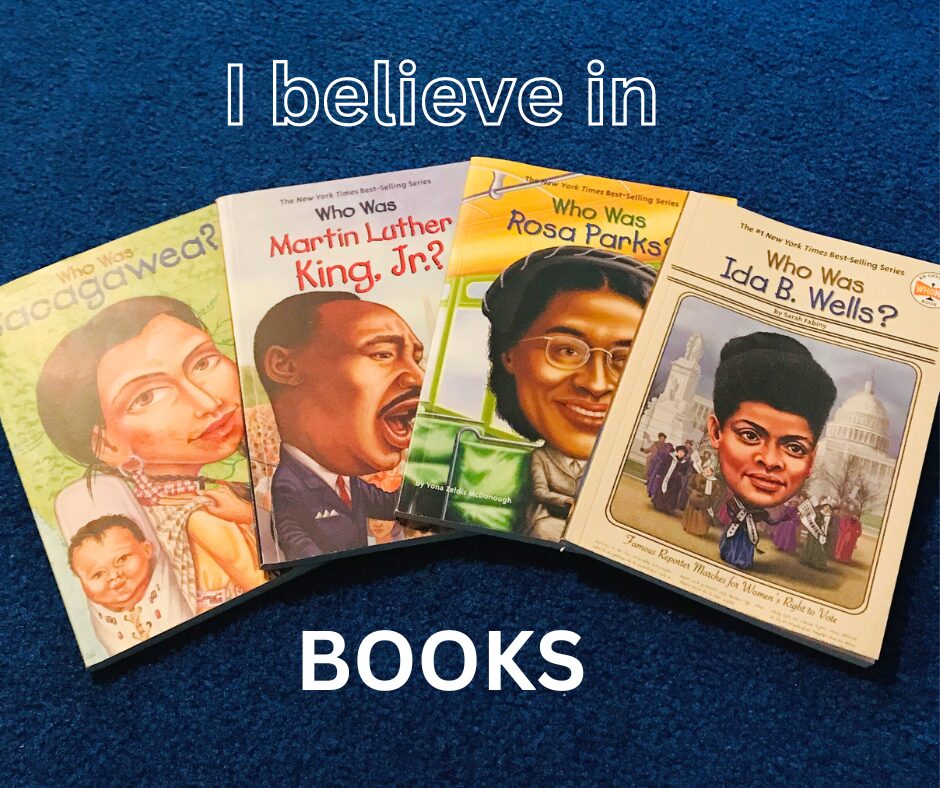
Since a good friend of mine suggested writing my personal stories, I start with my recent life achievement: The book club. Here is how I started a book club.
I used to be a heavy social media user. I mostly collected information such as news articles and cultural trends by following major news media accounts, scholars, writers, and some Japanese-speaking individuals like myself who have lived in the United States for many years.
At the beginning of the pandemic, I learned a lot about racial and social injustices happening in this country.
Honestly, it was a wake-up moment for me to realize how much I never knew about systematic racism. At the same time, I learned how much this country is divided politically. I felt ashamed for not knowing such important things, which could affect my and my kids’ lives. So, I started paying more attention to newspapers, news magazines, and books.
I have to admit that I could have been a better book reader. Reading was not something I was always eager to do although I used to love reading comic books in my childhood. Yet, I learned how powerful it is. Reading provides knowledge and opportunities to imagine other’s unfortunate situations, which makes me think about what we can do to change the world. On top of that, reading encourages me and empowers me to do some actions even if I have never done anything like that in my life.
In the meantime, I had an opportunity to learn about people in the local Japanese community. A handful of people are only aware of political and social issues. As far as I observed two particular social media outlets, most people were not interested in social and political issues. Additionally, I discovered a similar thing in my circle of friends that I used to socialize with sometimes before the pandemic. Frankly speaking, I was appalled by it. Then, I started looking into what causes such bizarre behavior, asking my questions to some friends and acquaintances who are familiar with social psychology and media.
After exchanging opinions and referencing sources with them, a couple of interesting things have come to clear to me.
- Most Japanese people in the United States are unlikely to read major newspapers or magazines in English. They rather prefer to collect information or learn something for daily life from Japanese media such as Yahoo Japan and TV stations or even popular YouTubers. It’s because they are reluctant to read English texts because of a lack of English comprehension. It’s easier for them to learn anything in their native language.
- Japanese society is unlikely to consider human rights. It’s not necessarily an inclusive society for people of color, financially disadvantaged people, and disabled people. Besides, it’s a very closed and oppressive society against people who speak out. Even if someone expressed concerns about human rights in a certain community, she or he would not be taken seriously. At worst, if her or his opinions jeopardized their convenience or resources, she or he could end up being excluded by the community. Thus, people tend to keep their mouth shut and bury it in themselves. Since neither the Japanese government nor the media aggressively bring up much about human rights issues, there is no doubt that people live in their bubble unless they learn something different from the media overseas.
Education is one of the most important things for human beings. Those Japanese people in the United States need to be educated somehow to understand that human rights issues are closely related to them. They just need an opportunity to learn the facts and get inspired by peers to take action toward the change.
Okay, so what if I give them an opportunity? That’s what I came up with.
But how? How can I provide them an opportunity?
As I mentioned earlier, reading is a powerful tool for me. Since I started a daily reading habit, I gained English vocabulary, writing skills, and needlessly English comprehension.
So, here it is a book club anyone can join!
By reading about historical figures who played an important role in the United States, I believe that people could not only gain knowledge but also learn English.
I wanted to make the book club easy and friendly to anyone at any reading level. That way, people would not hesitate to join it. For the reading book list, I chose the “Who/What/Where” series, which reading level is designed for 8-year-olds and above.
I’ve already created a Japanese community website called “Yurudara-kai” several years ago. I’m managing the website, so establishing a small book club was not overwhelming. Yet, I needed to hear some opinions and support from my close friends.
As soon as I received helpful input from them, I announced the first monthly book club on my community website.
It was a great turnout! The more we have meetings, the better feedback I get from the members. It’s been 3 years since the first book club meeting kicked off. My book club has grown from 6 to 10 people now!
Some members said to me that they are not afraid of reading books anymore! The others said that they learned a lot about this country from the book club. That’s right! That’s exactly what I wanted to hear. Their feedback not only made me feel happy but also that I am doing something right to take a small step towards the change: The change toward social and racial equity for our kids and the future.
I took a long break from book club meetings this summer because I started my internship at the Cleveland Public Library. I love my job! As soon as I started working there, I confirmed that working at the library was my next career to build for the rest of my life.
Anyhow, I’m going to have a book club meeting again. Hopefully, I will see more people join my club!

Leave a Reply